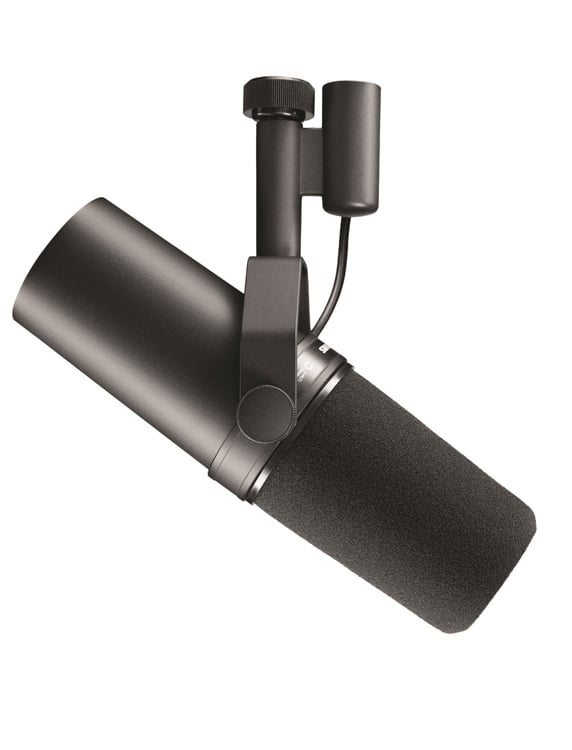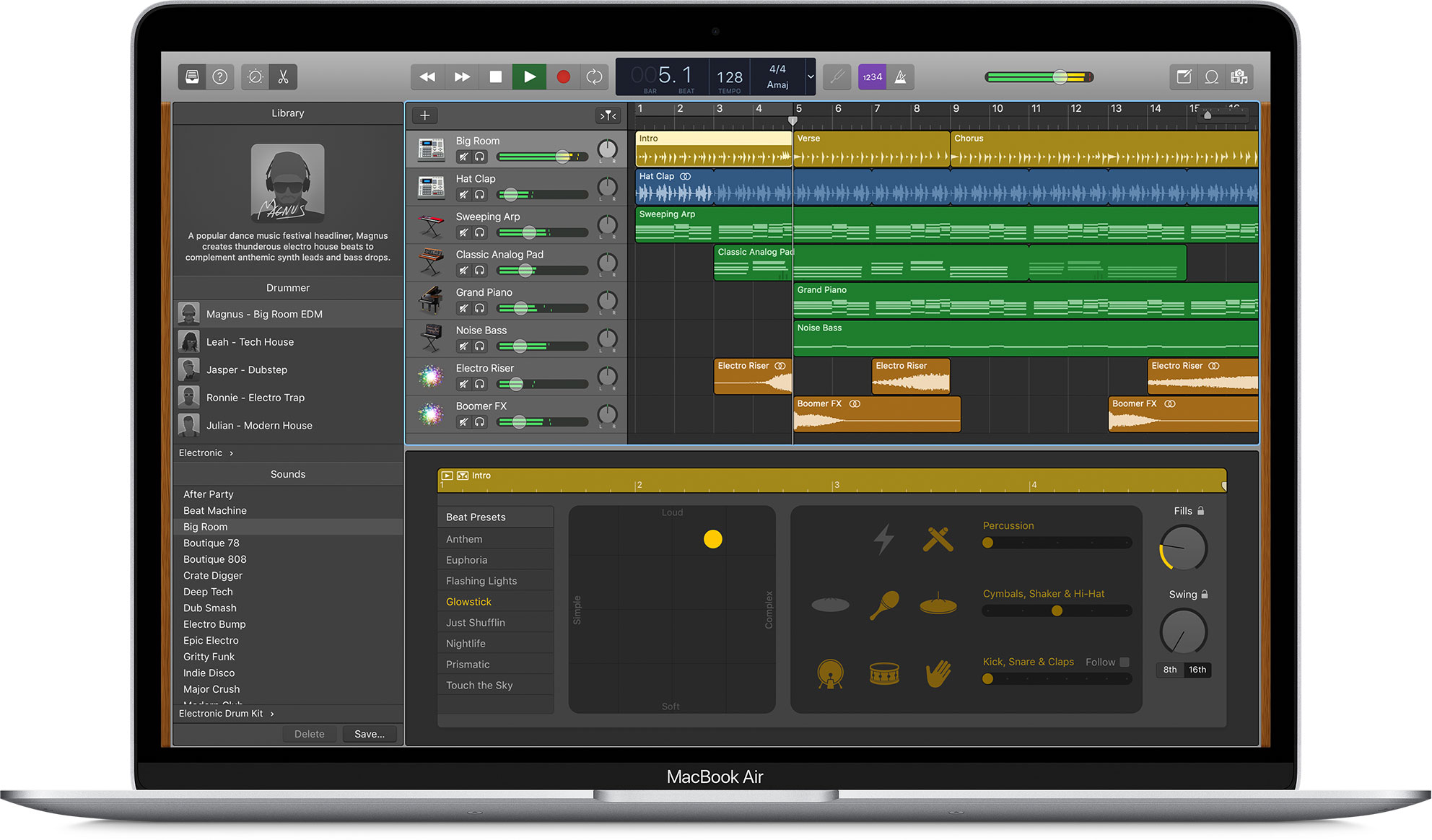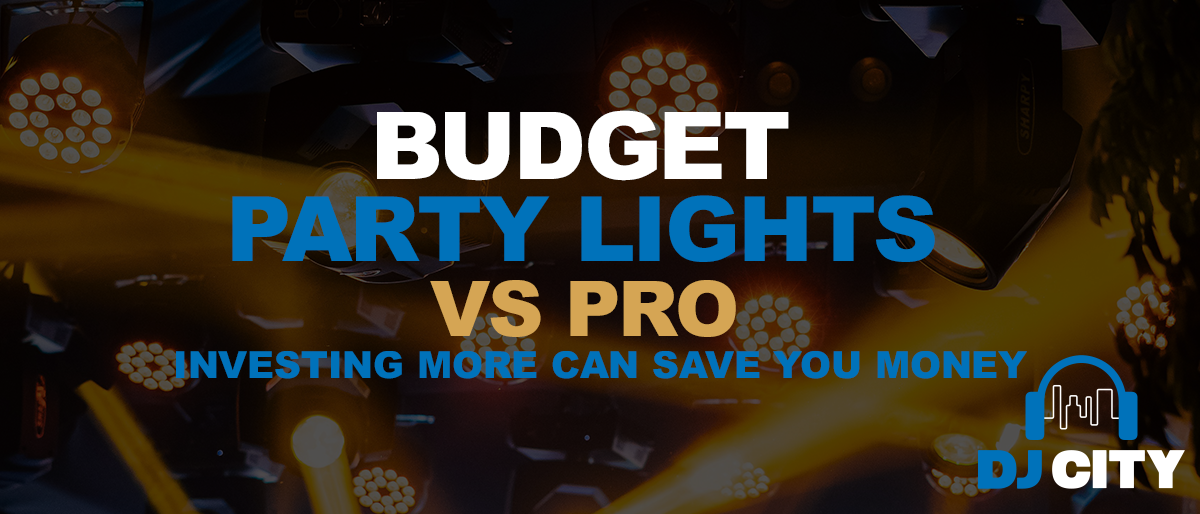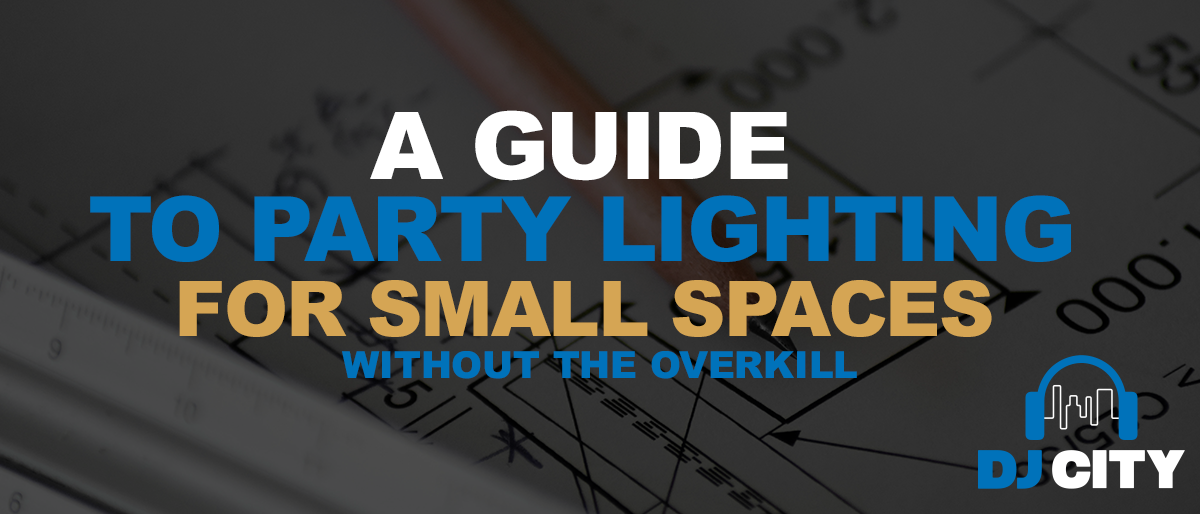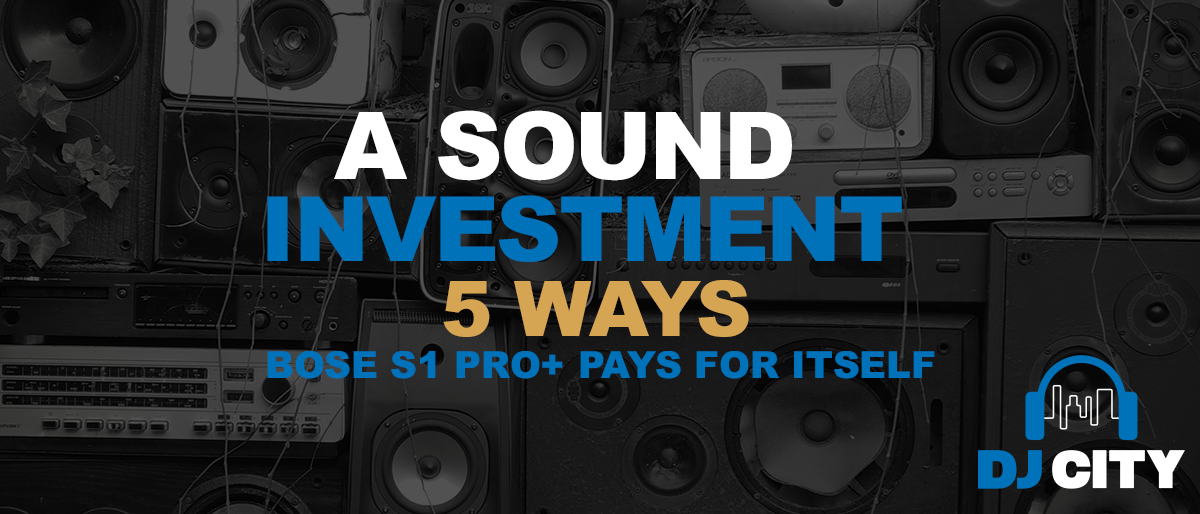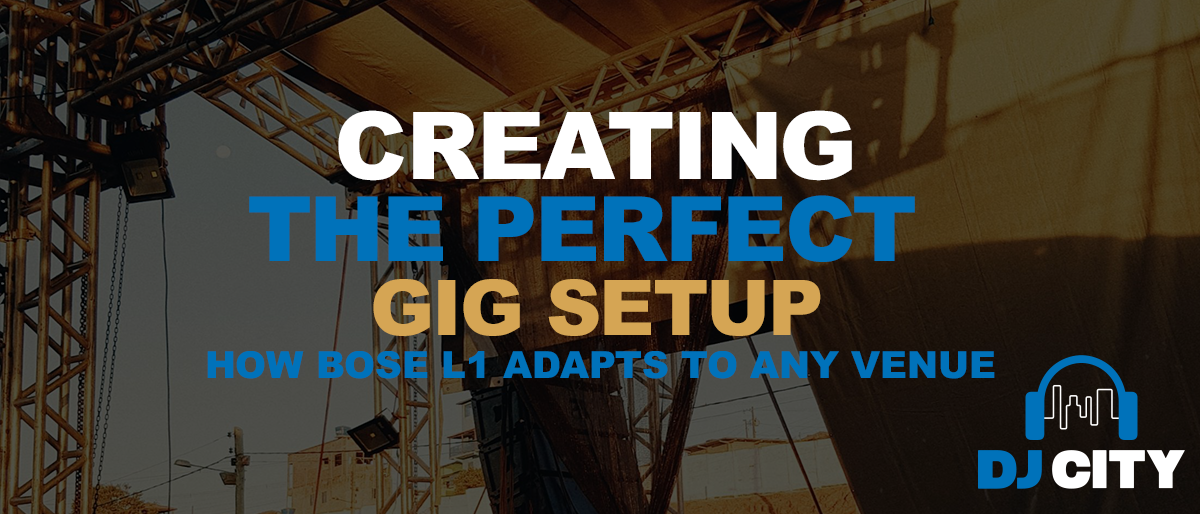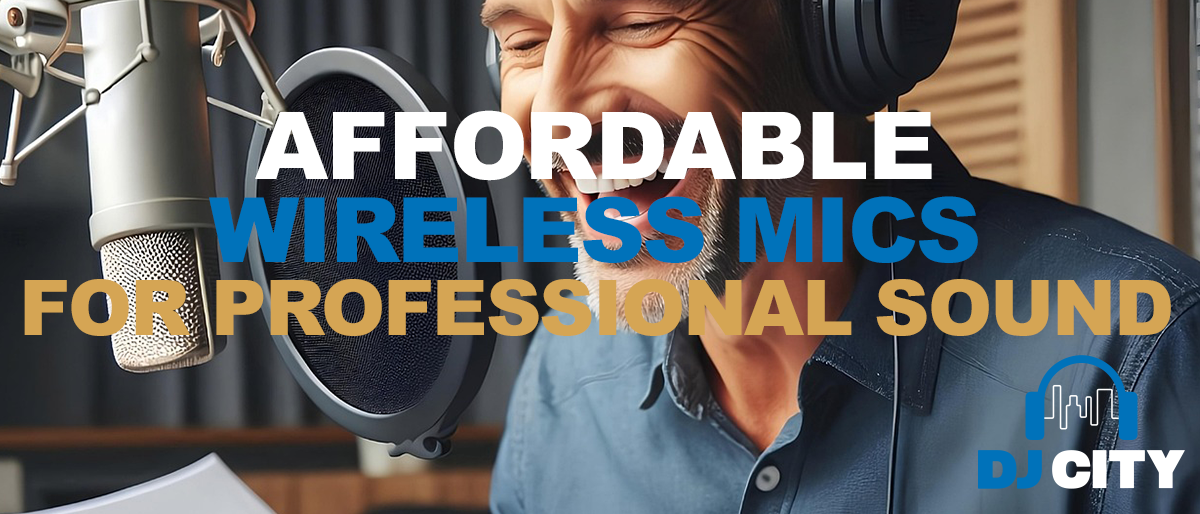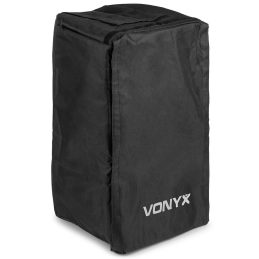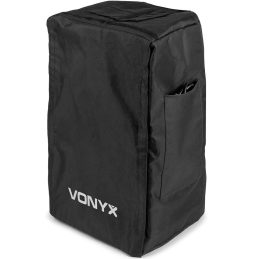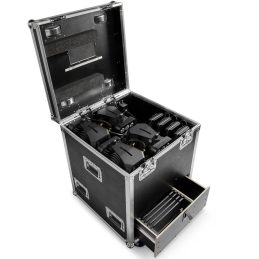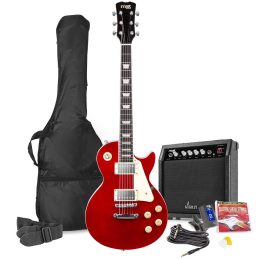
Start A Podcast: The Ultimate Guide To Podcasts
As a DJ or music producer, it’s important to keep up with the latest trends in content and digital marketing, and one of the most popular and widely consumed formats of content in 2021 is podcasts. In this article, we go through the fundamentals of podcasting, and why you should start one if you haven’t already!
- What is a podcast
- Why start a podcast
- How to start a podcast
- Tools/Podcast Equipment
- Launching and Growing a Podcast
- Get Started Today!
-
 $2229
$2229RODE RODECaster Pro Duo Bundle – Professional Podcast Production Studio
-
 $1599
$1599RODE RODECaster Pro Solo Bundle – Professional Podcast Production Studio
-
 $3039
$3039RODE RODECaster Pro Trio Bundle – Professional Podcast Production Studio
-
 $3659
$3659RODE RODECaster Pro Quad Bundle – Professional Podcast Production Studio
What is a podcast
Podcasts are pieces of audio and/or video content released on a regular basis. Enabling fans to subscribe to, download automatically, or stream, either on your computer, smartphone or other portable device. You’ll find a majority of podcasts are released on a weekly basis, while some are released monthly and even daily. Originating in 2004, the podcasting format has rapidly gained in popularity over the last few years. Primarily due to the fact they can be easily consumed basically anywhere! Whether you’re commuting to and from work, at the gym, or so on.
Most commonly a platform for conversation and interviews. Many DJ’s have also taken to podcasting in the form of mixtapes and mix shows. A way to showcase your talents as a DJ while giving the listener a variety of music to listen to. In turn, also creating a nice accessible portfolio to help land you more gigs, while increasing your followers at the same time. We believe both these formats can be beneficial as a DJ or producer.

Why start a podcast
It’s Easy
As a DJ, Producer or Musician, it’s likely you already have everything you need at your fingertips in order to produce a high quality and professional sounding podcast. And even if you’re not a fan of talking and interviewing guests. There’s no excuse not to record your DJ sets either at the club or at home and use those as episodes for your podcast or mix show.
And if you’re just getting started, you’ll need little more than a decent microphone to start recording right away. But we’ll get more into podcast equipment further on.
A platform for long-form content
In an era where we are constantly bombarded by short-form content in the form of Instagram photos, Facebook posts, and tweets. The majority of content takes only a few seconds to consume. While podcasts offer an avenue to go deeper, providing long-form content ranging from 30 minutes, to even several hours long.
What’s most interesting is the amount of attention given to podcasts. According to Salesforce, “Three percent of monthly podcast consumers listen to the beginning of a podcastonly”. Meaning, people who listen to podcasts are generally loyal and committed to hearing out the full episode. As opposed to blog posts where people are more likely to do a quick scan than read the entire thing. (Hopefully we still have your attention!)
Develop a personal connection with fans
Podcasts offer an avenue for your personality to shine, in an unscripted and unfiltered way. Listening to your podcasts gives your audience a chance to really get to know you and your brand while developing a sense of trust and connection.
For many people, listening to podcasts almost feels like you’re sitting around and apart of the conversation yourself. And after loyal listening week after week, it can almost feel like you’ve known the podcast host forever! Resulting in loyal consumers of your products and music!
Support fellow DJ’s and network
Whether you’re interviewing fellow DJs and industry professionals, or having someone do a guest mix on your show. Podcasts open up yet another avenue to support your fellow artists while networking with more people at the same time. It’s also a great way to get found by more people and grow your fan base.
Having a guest DJ will likely attract their fans to your podcast. Giving them an opportunity to get to know you and your brand, therefore converting them into a fan and regular listener of your show. It’s perhaps just as important to try and guest feature on other podcasts as it is to have others on your own show.
Make money from your podcast.
Whether you’re promoting your latest releases or monetizing with ads, there’s money to be made with podcasts. A study by podcast advertising network Midroll, found that 61% of listeners purchased a product or service after hearing it advertised on a podcast. Podcasts also provide you with the potential to drive traffic back to your website or online store. Therefore, it’s a good idea to direct your audience to purchase tickets for your next DJ gig or buy your latest album release!
How to start a podcast
Starting a podcast is easy, but there are a few things you need to consider:
- Decide on a concept (name, format, episode length)
- Branding (Logos and Artwork)
- Recording your first episode
- Get your podcast online
Concept
Your podcast starts with your name and will be the identity and foundation of your Podcast. When choosing a name you should make sure it relates to you, your music, and your target audience. Ideally, listeners and potential listeners will be able to immediately tell what your podcast is about without even listening. In addition to your name, most podcast directories will include a short description where you can include a bit more about what each particular episode is about. Don’t neglect the description either, it’s just another thing that will help optimize your podcasts to reach the most amount of people. So include as many relevant keywords as possible, because podcast directories are essentially a search engine in themselves and you want as many people as possible to stumble upon your show!
The next thing to decide on is the format and structure of your podcast. Will it be:
- Interview
- Solo conversation/talking to your audience
- DJ Sets/Mix Show
- Or a combination of the above
It’s also a good idea to set a relatively consistent episode length to aim for. Whether your episodes will be half an hour, an hour, or even longer. And how will that time be structured?
Branding
Your podcast logo and artwork needs to look professional. So if you don’t have the skills to design it yourself, consider hiring a professional. Or using one of the available online tools such as Fiverr or Upwork to find someone to put something together at an affordable price, without breaking the bank (although you do get what you pay for).
It’s important to keep in mind that many people will be viewing your podcast and its artwork on a small mobile device. So make sure the text and images on your artwork are large and clear enough to be legible on any size screen. If you already have a logo associated with your DJ persona, it’ll also be a good idea to include that as part of your cover art. Take a look at some of the top-ranking podcasts on iTunes and use their artwork as inspiration for something that will work well for your brand.

Record your first episode
So you’ve got your name and branding set, now it’s time to record your first episode. So how the hell do you start it?
It’s a good idea regardless of if you’re having a guest you’ll be interviewing, to start off your podcast by talking about yourself. Talk about who you are, what you’re about and introduce your newfound podcast to the world! You want to give your listeners a glimpse into what they’ll be expecting by continuing to listen to your show. Make sure to speak naturally and refrain from putting on any accents or “radio voices”. People want to hear the real you and will know straight away when you’re putting it on!
It’s important to let your podcast flow naturally. So refrain from reading from a script, and avoid constantly stopping, starting or re-recording segments. You can always edit out the bits that you really don’t like or that long pause where you forgot what you were talking about, in post-production.
Another common inclusion amongst the top-charting podcasts is an intro and outro. An intro is usually a short (<1 minute) segment of music with a voiceover, simply introducing yourself and your podcast. Adding that little bit of flair and excitement to the beginning of your podcast, and something that your listeners will come to associate with your podcast if it automatically starts playing after something else on their phone.
An outro is usually quite similar, rather than introducing yourself you would encourage your listeners to subscribe to your podcast and give it a review. Consumers are much more likely to do both of these things when prompted by you! Plus, they go along way in bumping your podcast up the charts and getting heard by even more people!
Get your podcast online!
You’ll need to get an online host for your podcast audio files. Ideally, this will be separate to that of your personal website host, as they generally are not capable of withstanding the high demands thrown at them with podcast downloading and streaming. Podcasts hosts often give you an avenue for distribution and monetization as well. The most popular podcast host would have to be Libsyn, and coming in at only $5 (starting price) a month, it’s quite an affordable option. Plus it’s also the trusted platform for some of the most famous and popular podcasts such as The Joe Rogan Experience and WTF With Marc Maron.
Once you’ve got your hosting plan set up and have uploaded your podcast episode, your podcast host will do all the rest of the work for you. By uploading and distributing to all the most popular podcasting services such as Spotify, Stitcher and Podbean. Apple Podcasts is still the largest directory of podcasts online, and you’ll have to submit your RSS feed to iTunes yourself. But if you were only going to have your podcast on one platform it would be this one, so click here to submit your podcast to apple now.
It’s a good idea to upload the audio and visual versions of your podcast to both Soundcloud and YouTube as well. Just a couple more ways to get your podcast in the ears of your audience.
Tools and Equipment
You won’t need a vast array of tools and equipment to get started recording audio for your podcast. You can even record your podcast entirely through your phone if you don’t have the budget for extra equipment. However, there are a couple of things that are going to help you produce the best quality podcast you can.
Microphone
The most important piece of podcast equipment you’ll need for producing a high-quality podcast is a Microphone. If you already have a home studio set up, or have access to a recording studio, you may already have a good microphone at your disposal. If not, don’t stress. You don’t need to spend an arm and a leg to get a good quality microphone going.
The best bang for buck option is to pick up a USB Microphone that you can plug into your computer and start recording straight away. Alternatively, you can spend a bit more money and go for a more professional-sounding microphone. However, that will likely also require an audio interface or mixer to power the mic.
Included below are a few popular options that you might want to consider when choosing a microphone for your podcast.
RODE NT-USB CONDENSER MICROPHONE
The Rode NT-USB is a high-quality side-address studio condenser microphone with integrated USB Interface. Part of the extremely popular Rode NT range, the NT-USB was engineered to deliver premium audio for your vocal recording, musical performance, or broadcast application. With its onboard 16-bit 48kHz converter allows you to connect directly into your PC, MAC, or compatible iPad tablet (requires camera connection kit).
Blue Yeti USB Microphone
The Blue Yeti Studio is a popular USB recording microphone perfect for podcasting, vocal recording, and voice-over applications. Easy to set up and use the Yeti features a proprietary tri-capsule technology that delivers pristine, studio-quality recordings with legendary ease.
Shure SM7B (More Advanced Option)
The Shure SM7B dynamic microphone is perfect for recording your voice-over and broadcasts. Easily mount and position your microphone with the unique ‘hanging-yoke’ design. With a smooth, flat, wide-range frequency response appropriate for music and speech in all professional audio applications. Also featuring a cardioid polar pattern, bass roll-off and mid-range emphasis (presence boost) control, and shielding against broadband interference.
Recording Software
You’ll also need some recording software to capture the audio for your podcast. For the most part, your favourite Digital Audio Workstation will work just fine. However, if you don’t already have any recording software, there are a couple of free options available.
Garage Band (FREE for Mac Users)
GarageBand is a fully equipped music creation studio inside your Mac. With a complete Sound Library that includes instruments, presets for guitar and voice, and an incredible selection of session drummers and percussionists. With Touch Bar features for MacBook Pro and intuitive, modern design, it’s easy to learn, play, record, create and share your hits worldwide. Now you’re ready to make music like a pro.
Audacity
Audacity is a free, easy-to-use, multi-track audio editor and recorder for Windows, Mac OS X, GNU/Linux and other operating systems.
Additional equipment
Although not necessary, you may want to consider adding the following things to your podcast setup. Taking the level of professionalism one step-further.
A good pair of headphones: Investing in a good pair of headphones is a great idea to not only accurately monitor the levels of your audio, but to avoid unwanted audio getting picked up from your speakers from guest speakers or videos played through your speakers.
Pop Filter: A simple pop filter can set you back as little as $10 dollars, and will help avoid your microphone picking up unwanted plosives and “popping” sounds when you’re recording.
Boom Arm: Boom arms work to keep your microphone in front of you, whilst hands-free. Giving you the ability to easily adjust the height and distance from your mouth. So that you can move around while keeping your microphone at a nice distance.

Growing and Monetizing your podcast
By now you should have the first episode of your podcast live and available for people to stream and download all over the world. So how do you go about growing your podcast?
As we briefly went over before, getting your audience to subscribe and review your podcast is the best way to get your podcast moving up the charts and heard by more people. Encourage your audience to subscribe and review during your outro, as well as on your website and social media posts. Offering your audience an incentive for doing this is a great way to get them to actually do it. Either a free MP3 download of your latest track/mix or even something as simple as a shout-out on your next episode. These things all go a long way in persuading your audience to leave a review.
Additionally, staying consistent with your episodes will help you grow a loyal audience. People like to know a specific day and even time when the next episode is going to be out, and you’ll lose listeners if you leave them waiting with inconsistent episode releases.
Once you’ve grown a reasonably sized audience, you can really think about monetization. Sponsors are the most popular way to monetize podcasts, and you can even link up with some through your podcast host. This usually involves reading an Ad on your podcast and providing some form of coupon code to your audience. Another way to make money with your podcast is by promoting your own products, and pointing your audience to your online store.
Start Your Podcast Today!
We’ve just covered everything you need to know about podcasts, and how starting your own can benefit you as a DJ. So what are you waiting for, use this guide as a reference and get started today!






